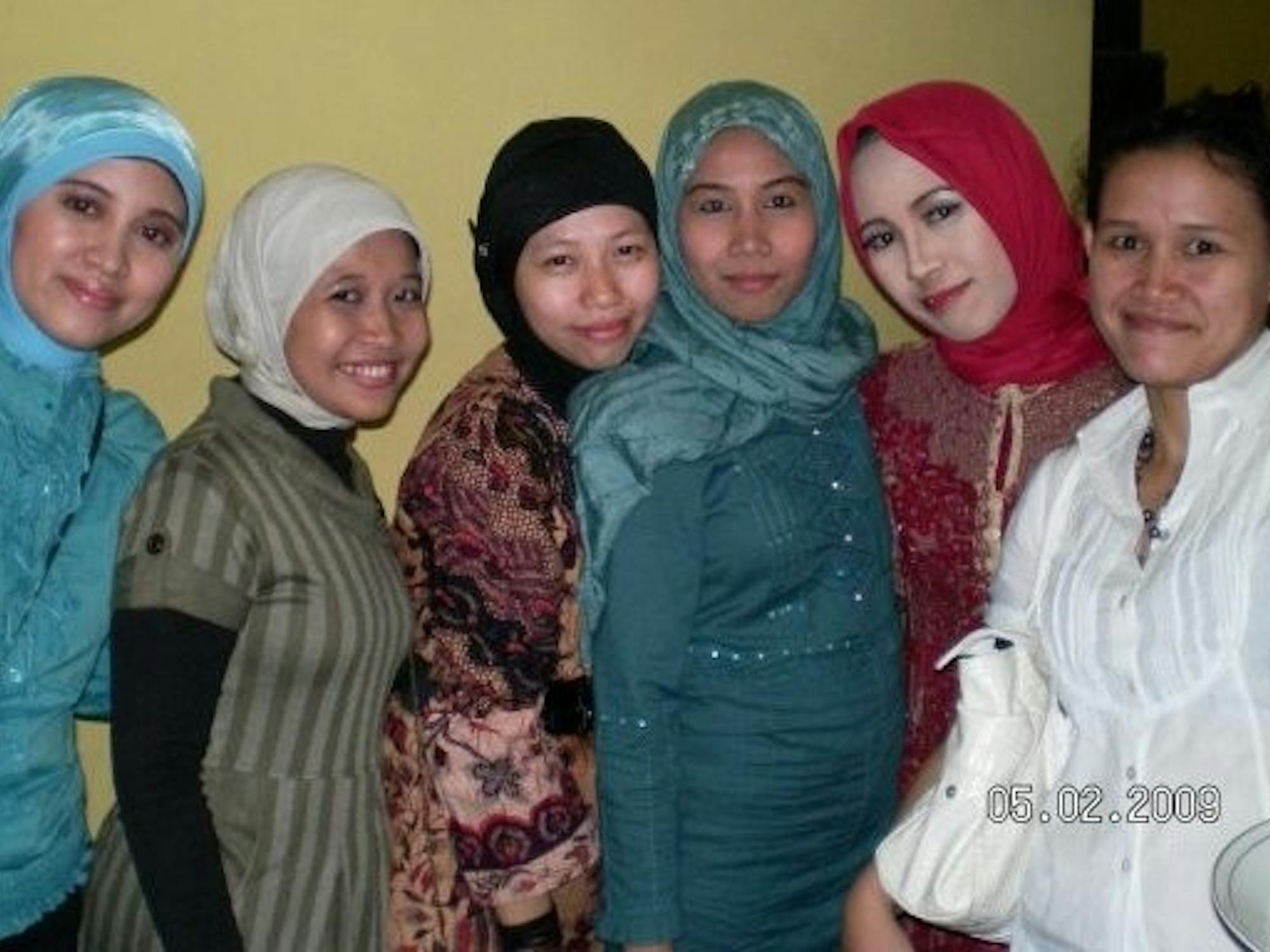It appeared as if the Eastern Michigan University’s Student Center was welcoming an influx of new female Muslim students Tuesday night, each with their own brightly colored headscarf, or hijab.
In actuality, this was the discussion portion of Hijab Day, a daylong event put together by EMU’s Women’s Resource Center in conjunction with the Muslim Student Association, where a number of non-Muslim ladies don the scarf. Among these ladies was yours truly, along with the lovely Christine “Crass” Denewith, better known as your Eastern Echo comics editor.
I chose to wear one of my own scarves, a seafoam green silk scarf covered in little white bows. After securing it over my uncontrollable locks (which, trust me, is no simple task), I was off to my first class, a guitar studio class. And, of course, I’m the only female.
To my surprise, the guys received the sudden change with good humor. I smiled as I took my spot in front of the room and felt especially hardcore nailing the classical piece I’d been rehearsing in a hijab.
In the bathroom of the music building, though, I felt my first twinge of awkward. Some of the girls gave me an odd look as I readjusted the headscarf. Could they still tell who I was? Would they have looked at me that way had I joined the music program as a
Muslim woman? If I’d suddenly converted?
My walk to my next class was equally as unsettling. On a typical day, I’d look up and toss the occasional smile at a passerby and, on a typical day, they’d smile back. But as they glanced over at me, with my snazzy hijab and guitar in hand, I got this strange feeling they thought of me as an anomaly, looking away as soon as possible—assuming they looked in the first place.
There were a number of positive experiences as well. As Crass and I prowled the town later that afternoon, we meandered into The Rocket (an Ypsilanti store). The woman working the front counter didn’t shoot us any odd glances or dirty looks and treated us exactly the same as any other time we’d been there. In fact, I felt as if she respected us even more.
When we stopped to eat at Korey’s Krispy Krunchy Chicken, we ran headfirst into the most awkward situation we could have possibly been thrust into in our hijabs—encountering actual Muslim women! As we took our seat in the booth behind them, they looked up at us and offered a hearty “As-salamu alaykum.” At this point, I searched through the mental file cabinet I’d compiled from my Arabic language class but could not find the proper response to this phrase. Flustered, I threw out a hurried “Hello” and hoped they wouldn’t think of me as some noob.
We returned to campus, where we met up with Pittman Resident Advisor Hannah Beerman, who promoted the event heavily in the dorm.
“It was really good to get residents open minded, to get them to get past the stigma that was the hijab,” said Beerman, a sophomore studying marketing.
The discussion was led in the Student Center Auditorium and began with a presentation by the lively speaker Duha Fahmy, a middle school teacher from Crescent Academy in Canton, Mich. and proud hijab wearer. She discussed the meaning behind the hijab, focusing on its ties to the preservation of purity, rejection of the world’s ridiculous standards of beauty and devotion to God.
From there, the auditorium was opened to share both experiences and curiosities.
Questions were asked and myths were debunked. Everything from Muslim dating and marriage customs to what hijab wearers are allowed to do to their hair was addressed (and yes, they can get cute bangs and dye their hair all they want).
Zaineb Al-Kalby, a junior majoring in electronic media and film studies, is the president of the Muslim Student Association. She did her part to answer any queries brought up during the discussion.
“It’s really enlightening for us to reach out to people because it feels like it feeds us spiritually almost, by teaching people our own religion and the things that are dear to us,” Al-Kalby said.
One of the points of Hijab Day was to shatter the stereotypes of hijab wearers. The caricature of the oppressed or “weak” Muslim woman is commonplace in today’s media, but as I and the other participants can attest, this image couldn’t be further from the truth. In a world increasingly hostile toward any sort of outward display of faith, these women could be considered among the strongest in the world. To denounce society’s norms and let your outward appearance reflect your beliefs and spirit takes a lot of courage.
“It’s a physical barrier between me and this life,” Al-Kalby said. “I understand that I’m going to be leaving this world at some point, and this is also a physical reminder that I’m doing this for God. All my work I do is for God.”










